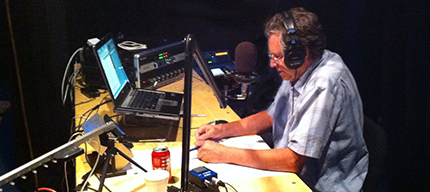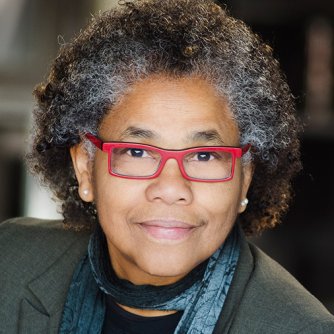
The guy who has to pronounce the words to spell has to be prepared as well. For almost 30 years, that's been Charley Samson, one of the CPR Classical music hosts.
He must learn about a thousand words each year.
"And then I also have the prerogative of throwing words out I don't like, either because I can't pronounce them, or because I don't think they're very valuable as a word to know," Samson said.
The state bee is Saturday at the University of Denver.
Samson’s spelling ability in school:
"I was good. I went to Catholic school. We were all great spellers there. There was a time in Colorado when Catholic schools had their own bee. Because when they went into the state bee they just cleaned everybody’s clock. We did it back in the day as part of the regular school day where now it is an after school activity, only certain public schools bother,
"It just takes one coach that convinces kids to try the spelling bee instead of some other after-school activity.
"The other thing is this is a great experience for the kids. These are middle school kids, the most embarrassable age group there is. And for them to get up in front of a room for of people and have the discipline and foresight and the nerves to spell these words, it’s quite something."
Why he enjoys his role and working with these students:
"They’re funny. They are so funny. There will be out and out comedians every year. And they go for the joke rather than concentrating on the words sometimes. But they are very cute. They’re just adorable.
"They can ask me in the later rounds if I can use it in a sentence. They’re probing to get more information from me. So they may pose the question rhetorically in a way I can’t answer it. And I say, ‘I can’t do that.’ For example, one of the rules is I can’t over-pronounce the schwa, this universal uh sound that stands for a lot of different vowels. But I can’t over-pronounce it which might be a giveaway from them. And they might say do you mean this or this. They want the gradations and I have to take the middle road. But they can ask for part of speech, language of origin, use it in a sentence. They can make me repeat anything endlessly.
"The main sin is that they think they have to stall for time when they really don’t. So a lot of them will ask questions thinking they have to stall for time and very often what that may do is distract themselves when in fact they do know the word.
"It’s like the alternate pronunciations thing. Sometimes they help and sometimes they don’t. That’s what I’m thinking as I prepare this. How many of these pronunciations do I give them right away And I’ll even say to kids, ‘There is an alternate pronunciation but I don’t think it will help you. If you insist I’ll do it,’ but I am usually right that it won’t help."
Why he offers advice:
"The idea is that we want them to do well. The idea is not to trip them up, but to give them all the relevant information to spell a word.
"They have these little booklets they get. Most kids memorize these. I forget how many words are in them. But at some point in the bee we depart from those booklets and give them words they haven’t seen.
"The big misunderstanding about the spelling bee is people think it’s all about memory, and to a degree it is, but if you are going to spell words you’ve never seen you have to know the roots. You have to know Latin and Greek especially."
What happens when there’s a winner:
"Photographers and the press surrounds them. Pictures are taken. The prizes are awarded to them. Then later in May they are off to Washington."
Does he get a hug from the winner?
"Some of them do. And one of the neat things about our Bee, and maybe all of them, is that previous winners are present to comfort people who go down. They leave the stage and immediately someone who’s been there will comfort them."









